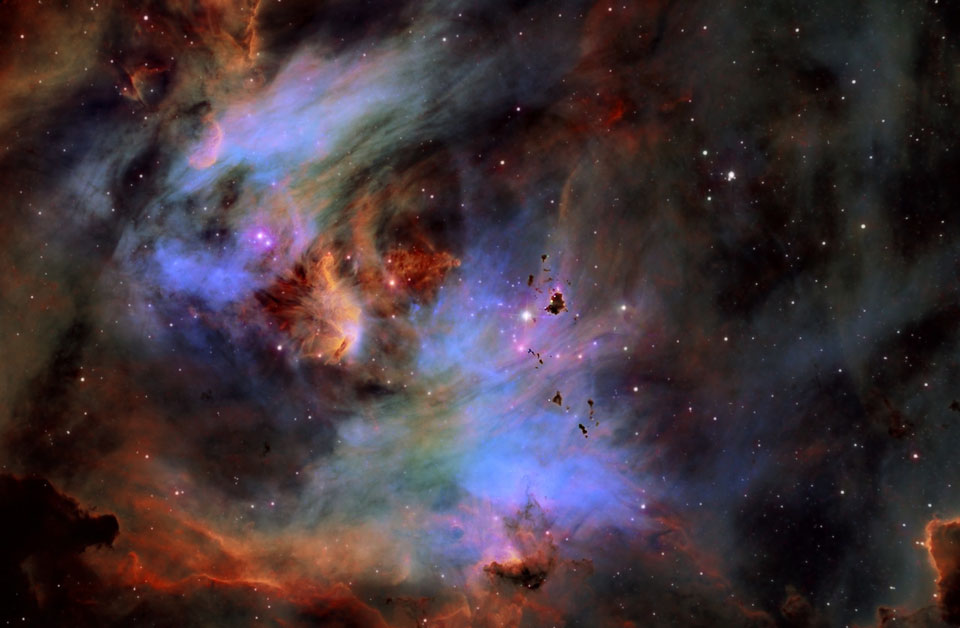Globules in the Running Chicken Nebula
The eggs from this chicken may form into stars. The above pictured emission nebula, cataloged as IC 2944, is called the Running Chicken Nebula for the shape of its greater appearance. The image was taken recently from Siding Spring Observatory in Australia and presented in scientifically assigned colors. Seen near the center of the image are small, dark molecular clouds rich in obscuring cosmic dust. Called Thackeray's Globules for their discoverer, these "eggs" are potential sites for the gravitational condensation of new stars, although their fates are uncertain as they are also being rapidly eroded away by the intense radiation from nearby young stars. Together with patchy glowing gas and complex regions of reflecting dust, these massive and energetic stars form the open cluster Collinder 249. This gorgeous skyscape spans about 70 light-years at the nebula's estimated 6,000 light-year distance.
Copyright: Fred Vanderhaven
 |
 |
|
|||||||||||
 |
 |
||||||||||||
|
|
|
|
|
|
|
||||||||
 |
|
|
|
|
|
 |
|||||||
|
|
|
|
|||||||||||
|
|
|||||||||||||
|
|
|
|
|
|
|
|
|
|
|
|
|
|
|
Results 1 to 1 of 1
-
11-25-2014, 11:59 PM #1
Globules in the Running Chicken Nebula
Similar Threads
-
Ray the Chicken
By Farmer1 in forum Jokes/Humor Forum in honor of bwcbobReplies: 2Last Post: 11-15-2020, 12:02 AM -
Chicken Gun....
By bwcbob in forum Jokes/Humor Forum in honor of bwcbobReplies: 2Last Post: 04-29-2020, 03:25 PM -
Orion Nebula, Flame Nebula, Horsehead and Running Man Nebula
By Capt.Kangaroo in forum The Universe at a GlanceReplies: 0Last Post: 03-06-2017, 06:40 AM -
IC 2944 Running Chicken Nebula
By Capt.Kangaroo in forum The Universe at a GlanceReplies: 0Last Post: 05-31-2016, 04:49 AM -
Chicken ala King..
By K00lKatT in forum What's CookingReplies: 2Last Post: 12-18-2014, 02:50 AM







 Reply With Quote
Reply With Quote